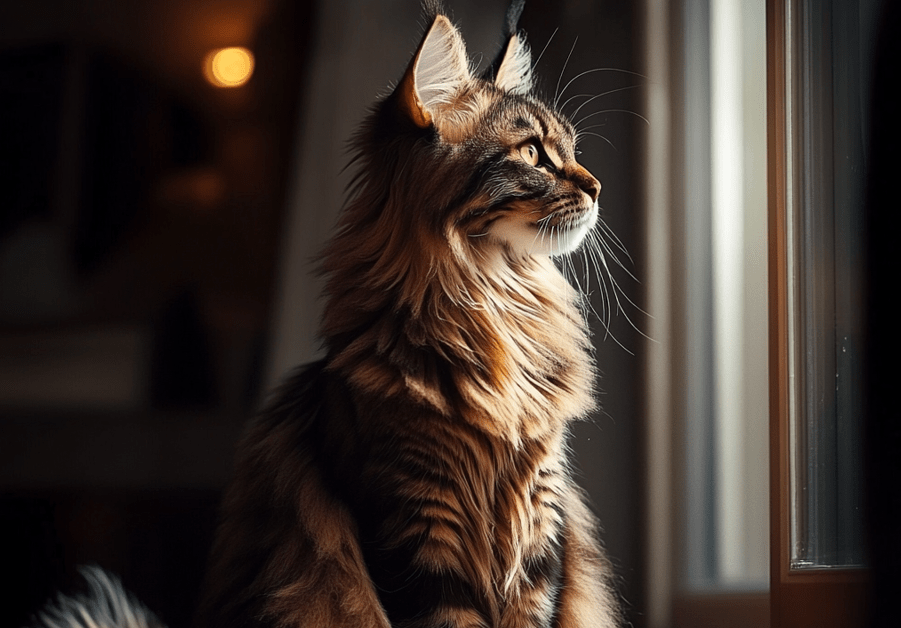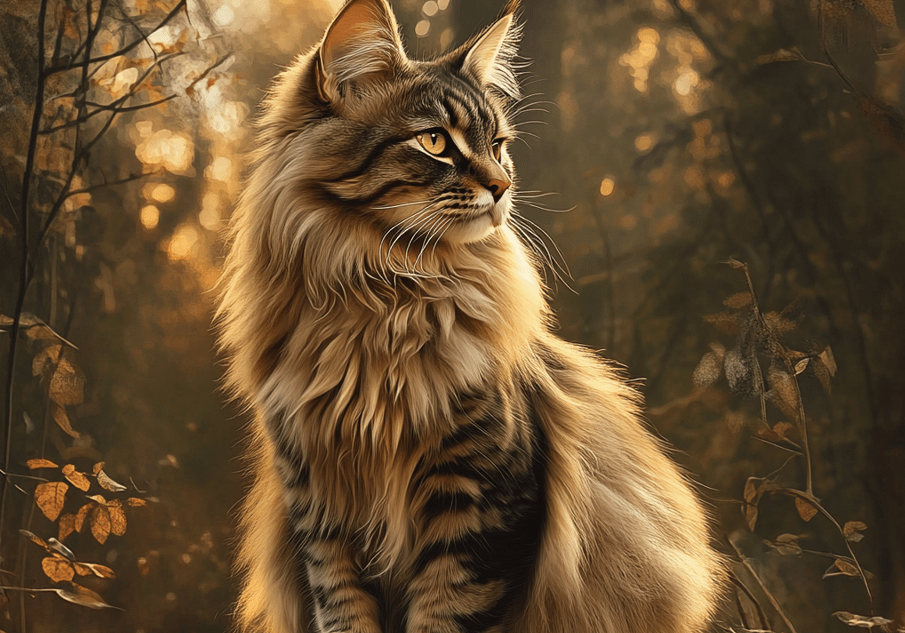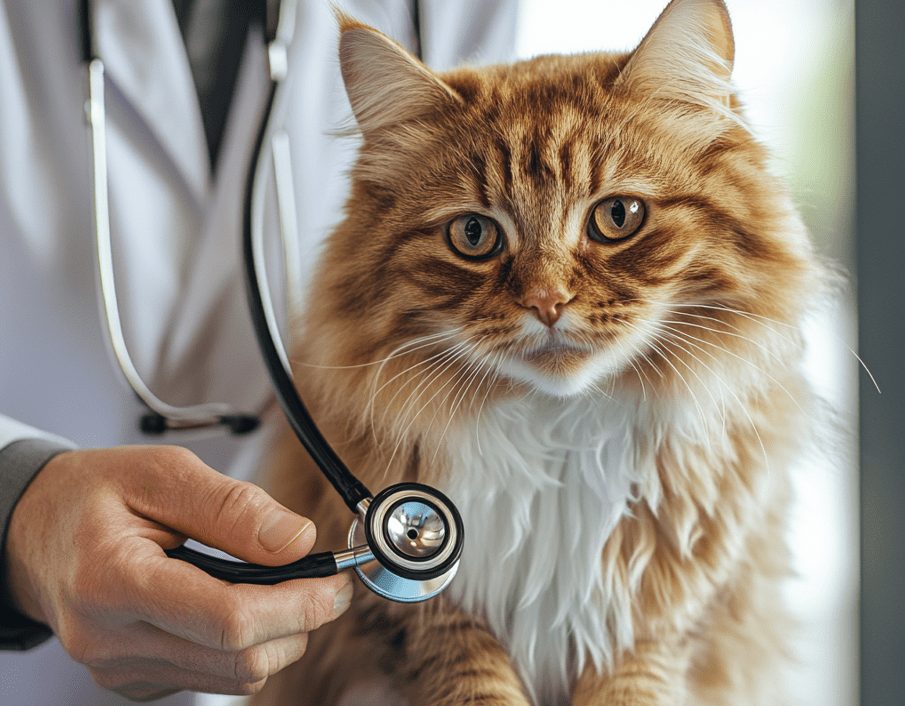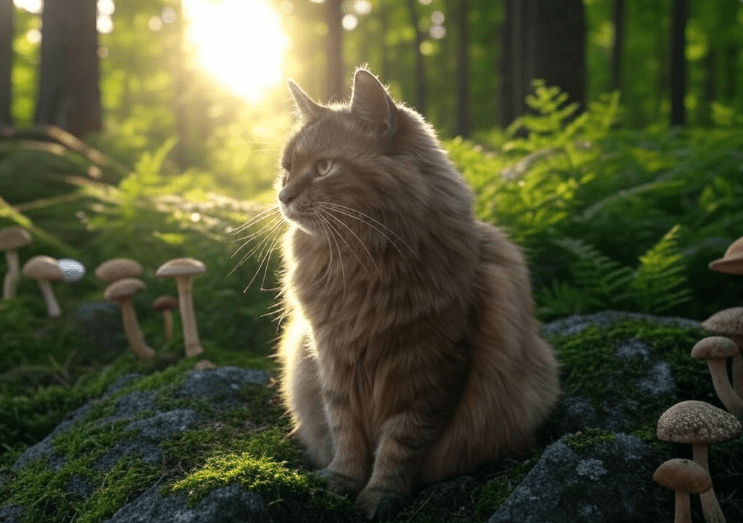
Maine Coons, with their majestic size and affectionate nature, are cherished by cat owners worldwide. However, like all cats, they can experience health issues, including Maine Coon constipation. This comprehensive guide, updated for 2025, provides practical, safe, and effective strategies to address constipation in Maine Coons. From recognizing symptoms to implementing diet changes and seeking veterinary care, this article equips you with the knowledge to keep your gentle giant healthy and comfortable.
Understanding Maine Coon Constipation
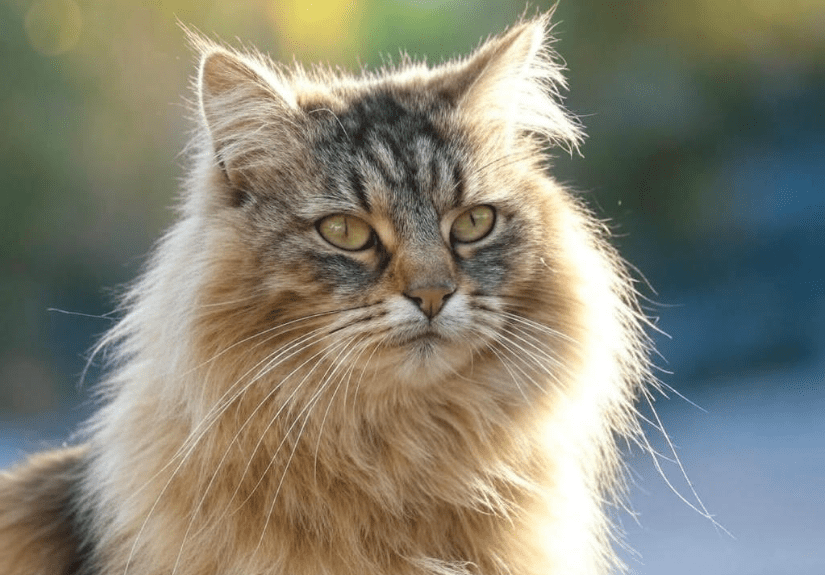
Constipation in Maine Coons occurs when a cat struggles to pass stools regularly, resulting in hard, dry, or infrequent bowel movements. Maine Coons may be particularly prone due to their large size, long digestive tracts, and thick fur, which can contribute to hairballs or dietary issues. Left untreated, constipation can lead to discomfort, pain, or serious conditions like megacolon. Recognizing and addressing Maine Coon constipation early is crucial for your cat’s well-being.
Symptoms of Constipation in Maine Coons
Identifying constipation promptly allows for timely intervention. Watch for these signs:
Infrequent Bowel Movements: Fewer than one bowel movement every 1–2 days.
Straining in the Litter Box: Your cat may crouch or vocalize without producing stool.
Hard, Dry Stools: Small, pellet-like stools that are difficult to pass.
Lethargy: Reduced energy or reluctance to play.
Loss of Appetite: Disinterest in food or water.
Abdominal Discomfort: Sensitivity when touched around the belly or hunched posture.
Vomiting: In severe cases, constipation may cause nausea.
If your Maine Coon shows these symptoms for more than 24–48 hours, consult a veterinarian immediately.
Causes of Maine Coon Constipation
Understanding the root causes of Maine Coon constipation helps in prevention and treatment. Common causes include:
1. Dietary Issues
Low-Fiber Diets: Diets lacking sufficient fiber can slow digestion.
Dehydration: Insufficient water intake leads to dry stools.
Hairballs: Maine Coons’ thick fur increases hairball risk, which can obstruct the digestive tract.
2. Lifestyle Factors
Lack of Exercise: Sedentary Maine Coons may have sluggish digestion.
Stress: Changes in environment, routine, or household can affect bowel habits.
Litter Box Issues: Dirty or inaccessible litter boxes may cause a cat to “hold it in.”
3. Medical Conditions
Megacolon: A dilated colon that impairs normal bowel function, more common in large breeds like Maine Coons.
Obstructions: Foreign objects or tumors can block the intestines.
Arthritis or Pain: Older Maine Coons may avoid the litter box due to joint pain.
Neurological Disorders: Conditions affecting nerve function can disrupt digestion.
4. Medications
Certain drugs, such as painkillers or antihistamines, may cause constipation as a side effect.
Safe Home Remedies for Maine Coon Constipation
Before attempting home remedies, consult your veterinarian to rule out serious conditions. Here are safe, vet-approved strategies to relieve mild Maine Coon constipation:
1. Increase Hydration
Dehydration is a leading cause of constipation. Encourage your Maine Coon to drink more water with these tips:
Provide Fresh Water Daily: Use a wide, shallow bowl, as Maine Coons prefer to avoid whisker stress.
Invest in a Pet Fountain: Running water attracts cats and promotes drinking.
Add Wet Food: Incorporate canned food, which has high moisture content (70–80%).
Flavor Water: Add a splash of low-sodium chicken broth to entice drinking (ensure it’s onion- and garlic-free).
2. Adjust Diet
A balanced diet can prevent and alleviate constipation:
High-Fiber Foods: Introduce wet foods with added fiber, such as pumpkin puree (1–2 teaspoons daily, plain and unsweetened) or specialized high-fiber cat food.
Probiotics: Supplements like FortiFlora can support gut health and regular digestion.
Avoid Human Foods: Never give dairy or high-fat foods, as they can worsen digestive issues.
3. Promote Exercise
Physical activity stimulates digestion. Engage your Maine Coon with:
1.Interactive toys like feather wands or laser pointers.
2.Cat trees or climbing structures to encourage movement.
3.Daily play sessions of 15–20 minutes to keep them active.
4. Hairball Management
Since Maine Coons are prone to hairballs, regular grooming reduces ingestion of loose fur:
1.Brush your cat 2–3 times weekly with a deshedding tool.
2.Use hairball-control treats or gels, such as Tomlyn Laxatone, as recommended by your vet.
3.Ensure a clean litter box to encourage regular elimination.
5. Litter Box Optimization
A comfortable litter box setup prevents avoidance:
Size Matters: Maine Coons need large, low-sided boxes to accommodate their size.
Cleanliness: Scoop daily and replace litter weekly.
Multiple Boxes: Provide one box per cat, plus one extra, in quiet, accessible locations.
Litter Type: Use unscented, clumping litter, as Maine Coons may avoid strongly scented options.
Veterinary Treatments for Maine Coon Constipation
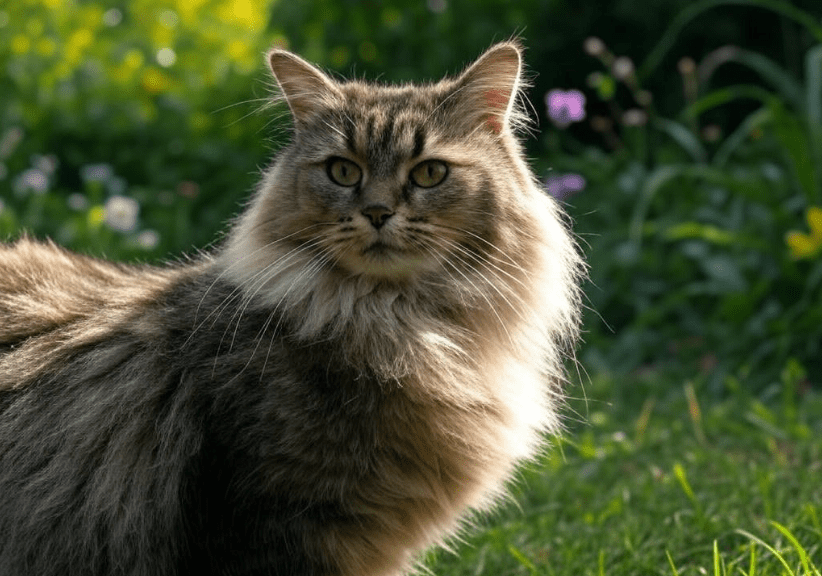
If home remedies don’t resolve Maine Coon constipation within 48 hours, seek veterinary care. Your vet may recommend:
1. Laxatives
Lactulose: A prescription liquid that softens stools and promotes bowel movements.
Miralax (Polyethylene Glycol): A gentle laxative often mixed with food (vet-guided dosage only).
Cisapride: A motility enhancer for chronic cases, used under strict veterinary supervision.
2. Enemas
For severe constipation, vets may administer an enema to clear blockages. This should only be done by professionals, as improper enema use can harm your cat.
3. Manual Disimpaction
In extreme cases, sedation may be required to manually remove impacted feces. This is typically a last resort for conditions like megacolon.
4. Diagnostic Tests
To identify underlying causes, your vet may perform:
X-rays: To detect blockages or megacolon.
Bloodwork: To check for dehydration, kidney issues, or thyroid problems.
Ultrasound: To examine the intestines for abnormalities.
5. Surgery
Rarely, cats with megacolon or persistent obstructions may require surgical intervention, such as a subtotal colectomy, to remove part of the colon.
Preventing Maine Coon Constipation
Prevention is the best approach to managing Maine Coon constipation. Incorporate these habits into your cat’s routine:
1. Maintain a Consistent Diet
1.Feed high-quality, vet-recommended food with balanced fiber (3–5% for wet food).
2.Transition to new foods gradually over 7–10 days to avoid digestive upset.
3.Avoid table scraps or sudden dietary changes.
2. Ensure Hydration
1.Place multiple water stations around your home.
2.Clean bowls daily to prevent bacterial buildup.
3.Consider a wet-food-only diet for chronic constipation, as advised by your vet.
3. Regular Grooming
1.Brush your Maine Coon regularly to minimize hairballs.
2.Schedule professional grooming for long-haired Maine Coons every 6–8 weeks.
4. Encourage Activity
1.Provide enrichment like puzzle feeders or window perches to keep your cat engaged.
2.Rotate toys to maintain interest and prevent boredom.
5. Routine Veterinary Checkups
1.Schedule annual exams (twice yearly for seniors) to monitor your Maine Coon’s health.
2.Discuss any changes in bowel habits or behavior promptly.
Special Considerations for Maine Coons
Maine Coons’ unique traits require tailored care:
Size: Their large bodies demand spacious litter boxes and higher caloric intake, which must be balanced to avoid obesity-related constipation.
Fur: Their thick coats increase hairball risks, necessitating diligent grooming.
Age: Senior Maine Coons (8+ years) are more susceptible to arthritis or megacolon, which can exacerbate constipation.
Temperament: Maine Coons are sensitive to stress, so maintain a calm environment to support digestion.
Common Mistakes to Avoid
When addressing Maine Coon constipation, steer clear of these errors:
Ignoring Symptoms: Delaying treatment can lead to serious complications.
Using Human Laxatives: Products like mineral oil or over-the-counter human medications are toxic to cats.
Overfeeding Fiber: Too much fiber can cause diarrhea or nutrient imbalances.
Neglecting Hydration: Dry food alone may not provide enough moisture for Maine Coons prone to constipation.
Inconsistent Litter Box Maintenance: A dirty box can discourage regular elimination.
When to Seek Emergency Care
Contact your veterinarian immediately if your Maine Coon exhibits:
1.No bowel movements for 72 hours.
2.Repeated vomiting or refusal to eat.
3.Severe lethargy or weakness.
4.Blood in the stool or litter box.
5.Signs of pain, such as crying or hiding.
These symptoms may indicate a life-threatening condition like an intestinal blockage or advanced megacolon.
Conclusion
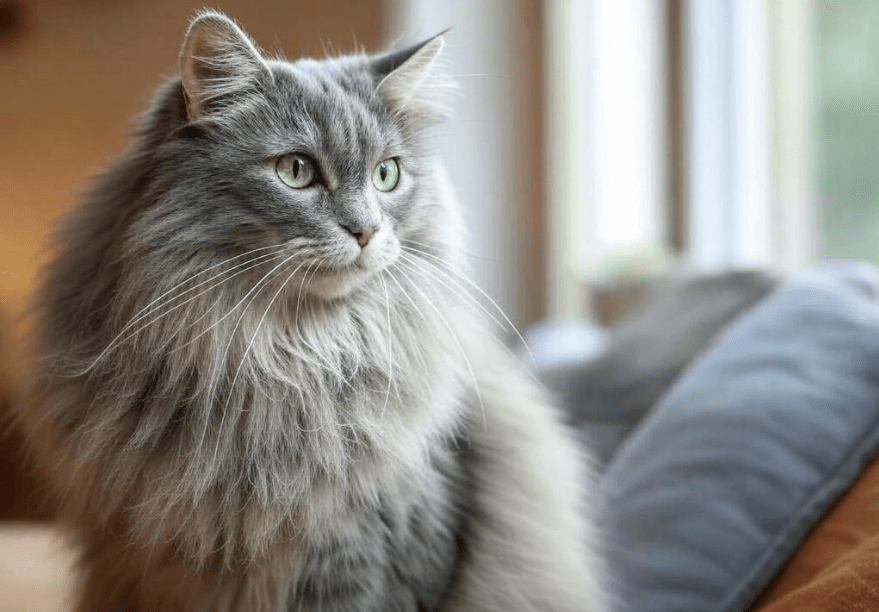
Dealing with Maine Coon constipation safely requires a combination of vigilance, proper care, and timely intervention. By recognizing symptoms, addressing causes, and implementing preventive measures, you can ensure your Maine Coon remains healthy and comfortable. Prioritize hydration, a balanced diet, regular exercise, and routine vet visits to keep constipation at bay. If symptoms persist, don’t hesitate to seek professional care to protect your gentle giant’s well-being.
With the right approach, you can help your Maine Coon thrive, enjoying their playful, loving nature for years to come. This guide serves as your go-to resource for managing and preventing constipation, empowering you to provide the best care possible.

